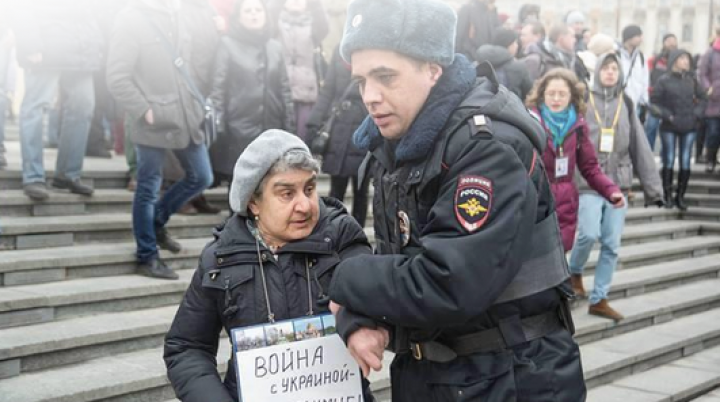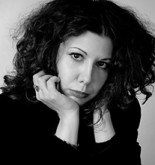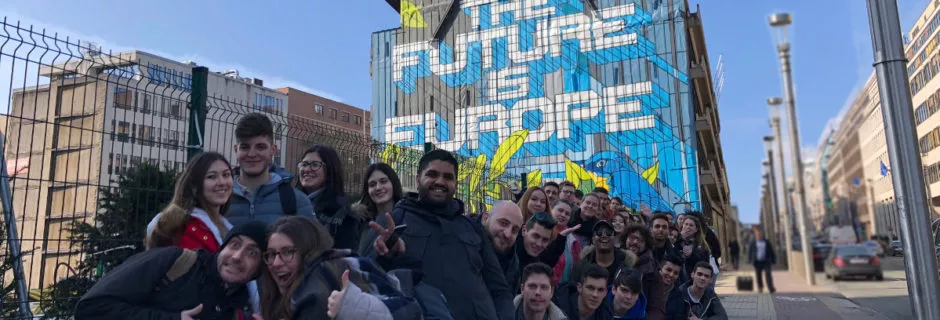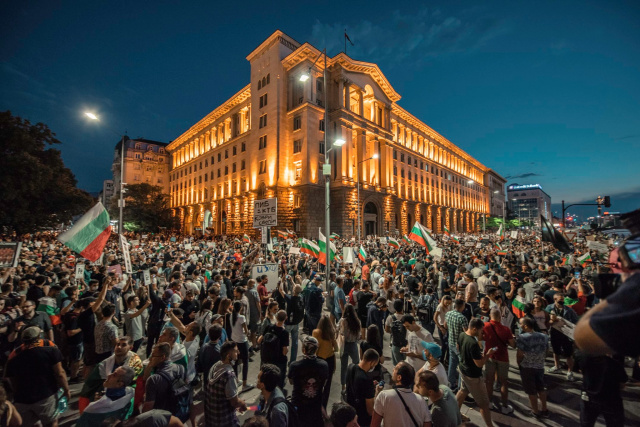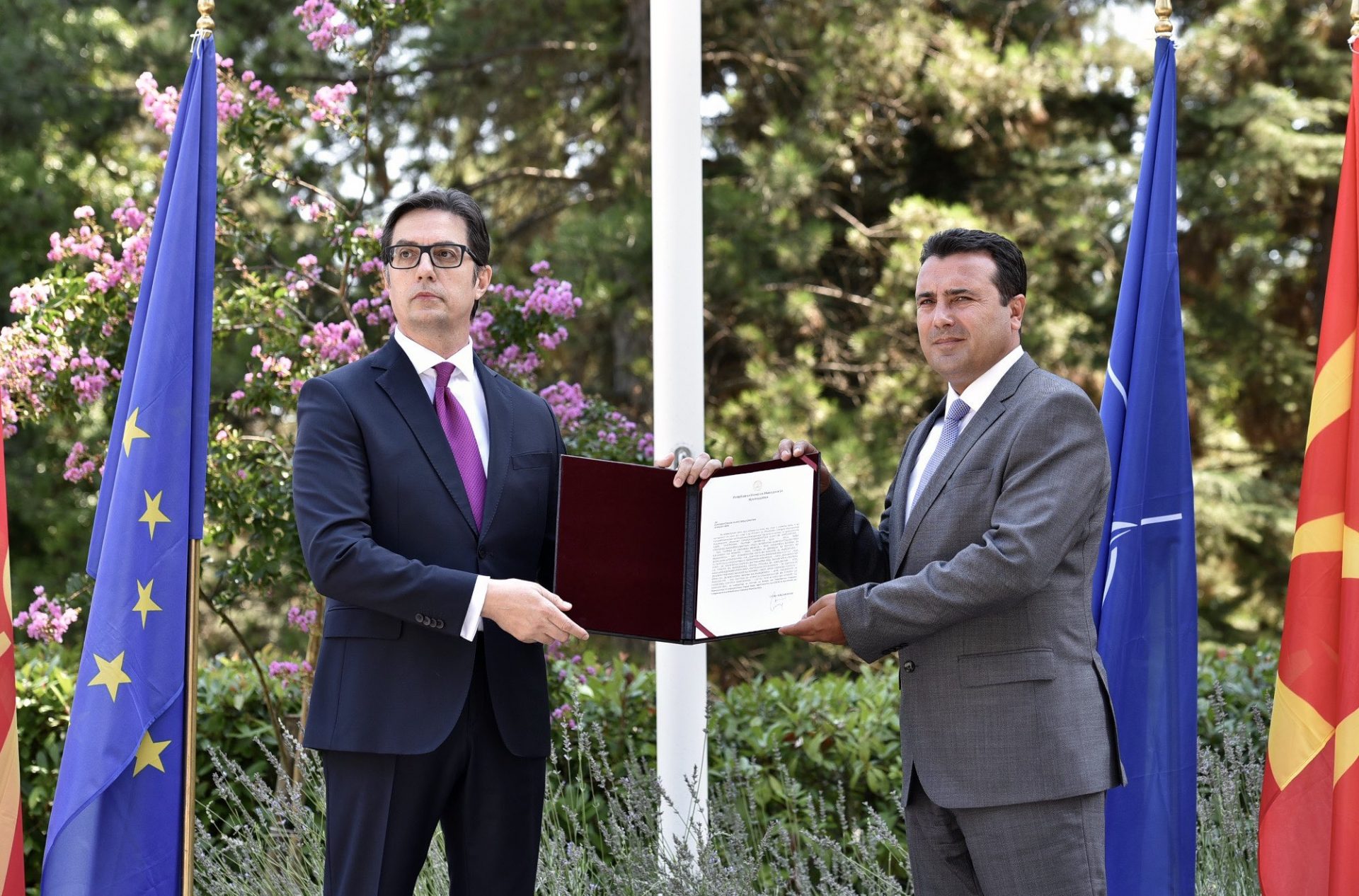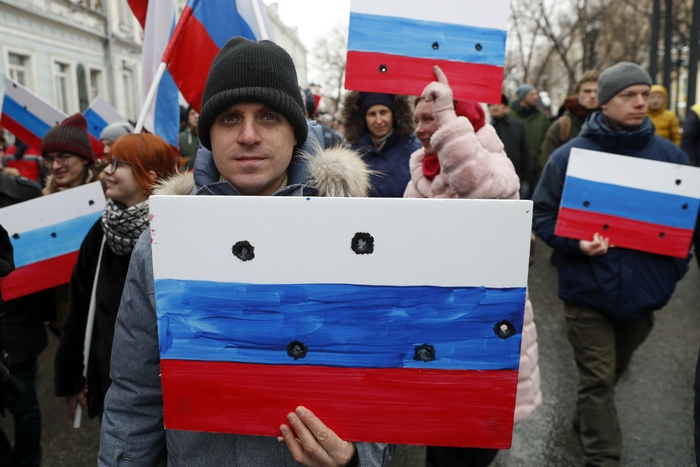„Kalugin slept and dreamed that as he knelt in the bushes, a militiaman passed by.
Kalugin awoke, scratched his mouth, slept again and dreamed again that he was passing by the bushes and in the bushes a miliatiaman was hiding and kneeling there.
Kalugin awoke, placed a newspaper under his head so as not to soil the pillow, slept again, and dreamed again that he knelt in the bushes and beside the bushes there passed a militiaman. (…) Kalugin screamed and shifted about in bed, but could not waken…”
From “Dream” by Daniil Harms, 22 August 1936
Who’s to say that writers aren’t prophets? Not only science-fiction writers, but also the absurdists. Especially in Russia. The nightmare of Kalugin with the militiaman who never ceases to stalk from the bushes actually continues in Russia almost a century later. Since the story by Harms, who was forcibly committed to a psychiatric facility and died there in torment, the militiaman has undergone several transformations from the Stalin era to the time of Putin.
Is this absurd, or is it the normal characteristic of totalitarian regimes?
The militiaman in Russia stalks not only in bushes and offices, large and small, with double paneled doors, walks the streets with discerning glances or hangs around like a spider at the cafes, sipping diluted “Russiano” coffee (at the end of last year Premier Dimitri Medvedev suggested that the country’s popular “Americano” coffee be rebranded “Russiano” since the name annoyed him). Now the post-Soviet militiaman lurks from the theatre loges to decide which performances are politically correct and which may be removed (according to the new law on the censorship of theatrical shows and other art works which can be liquidated even on a mere denunciation). But that’s not all. Lately in Russia they’re talking about a new version of one of the most absurd, grotesque laws there – against parasitism (i.e., by free professionals and people on the backs of society), which the militias cited in 1964 to arrest the future Nobel laureate Joseph Brodsky, and then forced him into psychiatric treatment, jail, and a labor camp. At that time the professional engagement with literature proved to be an insufficient argument against the militia’s accusation of “parasitism”. The result was that the poet suffered his first heart attack in jail and, although sentenced to a shorter term, he endured horrible conditions despite a storm of reaction in his defense by writers of the whole world.
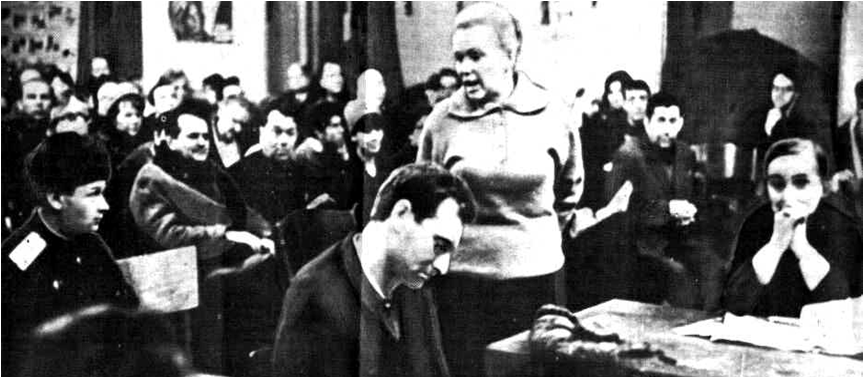
It’s well known that the KGB never abandons its old “clients”. And now?
Once again the militiaman lords over the writers – rearranging, rewriting, rewinding them like springs to the breaking point until they’re redefined and in the final analysis, deformed. The proof of the latter is not some literary production which historians will later pull up from the dusty archives as a “document of a terrible epoch,” but instead a civil reaction of certain Russian writers now to a situation where truth is replaced by a wholly different set of facts compatible with the militia imperative. This case immediately resounded in international writers’ and journalistic circles with the force of a slap on the face of truth. In other words, we’re speaking of the seismic scandal in the Russian PEN-Center between Russian writers and the authorities who are trying to exercise censorship not from the outside but from within.
HOW TO SURVIVE IN THE PARASITE KINGDOM
A few days ago Moscow awoke to a furious split among the ranks of Russian writers, initiated by a huge political scandal in the Russian PEN-Center – the indictment of a journalist and writer, expelled from PEN for his criticisms against the current political regime.
At a critical meeting in December the leadership there labeled him a “provocateur” and expelled him by a unanimous vote.

However, after that something occurred very suddenly and exponentially: In just three days as a sign of protest and support for the “provocateur” one by one over a hundred Russian writers voluntarily left PEN, following the example of the world famous Vladimir Sorokin, Boris Akunin, Liudmila Ulitskaya, the 2015 Nobel laureate Svetlana Aleksievich, Lev Rubinshtain, and others of their outraged colleagues, mostly active opponents of the Putin regime. But that’s not all. In a move of solidarity the St. Petersburg branch of PEN distanced itself from “staff hq.” in Moscow. The important document of 24 December 2016, signed by over 61 popular Russian writer-members of PEN was reaffirmed, i.e. an official letter to President Vladimir Putin in defense of the political prisoner Oleg Sentsov, Ukrainian director, scenarist, and writer sentenced to a 20 year strict regime sentence in Russia on a charge of terrorism. The alleged provocateur Parkhomenko repeatedly came out in his defense. On his behalf the Ukrainian president Petro Poroshenko wrote a letter to the unjustly convicted Sentsov: “Hold on, Oleg. There will come a time when those who organized the trial against you will themselves sit in the dock.”
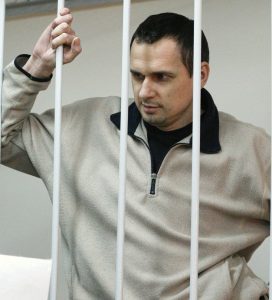
It was precisely this writers’ letter in defense of Oleg S., and the furious distancing of the leadership of the elite writers organization frivolously describing the document as the action of a “group of liberal oppositionists” which in just a few days led to the avalanche process of the collapse of Russian PEN.
In early 21st century Russia this case is unprecedented. Here’s why.
First of all, it’s important to be aware of the circumstance that PEN-Center in Moscow is affiliated with the elite international PEN organization, founded in 1921 for the purpose of defending freedom of expression of writers and journalists persecuted by dictatorial regimes or censored by the authorities – verbal yet radical defense which in the international space can be not merely noteworthy but also active, especially if the voices are those of world class writers (not surprisingly, members of PEN included famous dissidents among them Vaclav Havel, Salman Rushdie, etc.). Of course, in a situation of state control over almost all organs of free speech, it so happens that Russian PEN too is among the institutions that are unable to function autonomously. That’s the basic reason for this scandalous story, which for the first time since the period of the so-called Perestroika has succeeded in dividing Russian writers to such an extreme degree.
What’s the story?
On 28 December 2016, 15 Russian writers comprising the full membership of the Council of the Center voted for the ouster of journalist Sergei Parkhomenko, a prominent critic of Putin’s policies especially on the questions of Ukraine and the status of Crimea. In this way the Russian PEN-Center excluded one of the bravest opposition authors in today’s Russia for “provocative activity” and “attempting to destroy the organization from within”. This is not just a reaction of distancing; it’s another kind of reaction entirely. Because it takes place in a special context – remember that his colleagues who also didn’t cease to write, pursue, and recall facts connected with Putin’s policies toward Ukraine were investigated and in the end, physically liquidated (just last year there were two scandalous cases of murdered prominent Russian journalists who had written on precisely the same questions). The reactions of respectable writers, however, were absolutely different.
“During the years of Perestroika we were proud of our PEN, but now we’re ashamed of it. Russian PEN has told us that it’s not the business of writers to defend anyone and to stand up for something; the work of writers is to stay quiet and write, – or to put it correctly, to lick the boots of the Establishment,” declared Svetlana Aleksievich on the occasion of another 30 Russian writers quitting PEN. Their reaction was spontaneous, categorical, and simultaneous. “My commentary on the exclusion of Parkhomenko can only be to submit my resignation from Russian PEN, whose basic ideals were cowardly violated – Aleksievich further explained – Russian writers are acting as obediently and outrageously as in Stalin’s time. Putin will go, but this shameful page in the history of the PEN-Club will remain. And the names will remain. We live in a time when we can’t defeat evil, we’re powerless before the Totalitarian. But he can’t halt time. This I believe.”
THE GHOSTS OF THE COLD WAR HAVE AWAKENED
In early autumn of the dramatic and absurd year 2016, Moscow awoke to the arrests of citizens, in imitation of the Stalin period. The militiamen were even in uniforms which signaled a different era, always conscious in the hearts of patriotic Russian Putinophiles.
The event took place in the heart of the Russian capital, before the eyes of dozens of citizens passing by. An absurd aspect here is that it recalls a famous Russian film featuring Vladimir Visotski. The drama resides in the fact that some of the onlookers behaved like typical Soviet citizens – they not only didn’t understand that this was a theatrical improvisation, but they didn’t wish to know what was actually happening. It was enough that uniformed personnel abusing a victim undertook this criminal action to a round of cheerful patriotic applause. Without anyone knowing who is the perpetrator and who is the aggrieved, what’s the charge for the arrest, whether it’s fair or not, and where will it lead. Even if it leads to the Lubyanka. It’s more important to have a show of the vultures of totalitarianism, hungry for new Inquisitions and turmoil in the early 21st century.
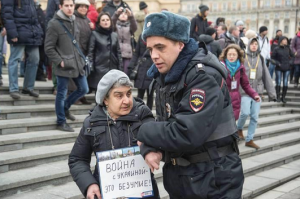
Let’s recall. There was a similar attitude toward the old history teacher, who a few days before the annexation of Crimea was staging a sole protest in the center of Moscow – against this action by Putin. What did it matter that an old woman stands alone and briefly holds a placard in the cold, instead of hiding like a cockroach under the kitchen stove, which is her place?
The difference is that this respectable woman was a retired history teacher. The ones in uniform escorted her home. Because in Putin’s Russia, if you don’t want to be labeled as an “enemy of the people,” a “pest,” or a “parasite” – protests are not particularly recommended. At all.

